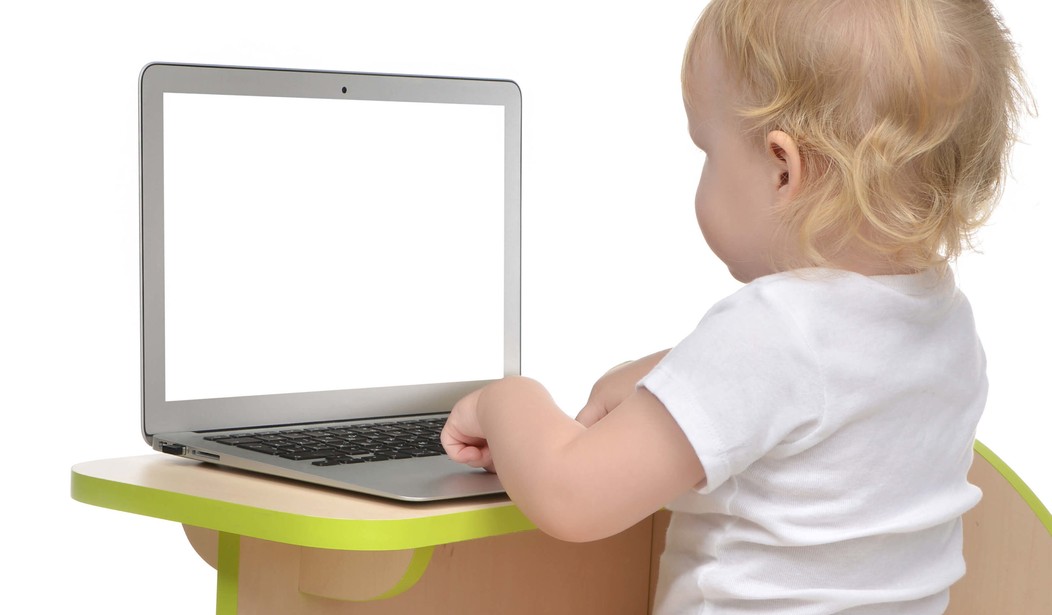The other week my very tech-savvy in-laws once again brought up the idea of buying a toy tablet for my toddler. They see how interested he is in pushing buttons and rightfully associate his curiosity with all things electronic with his father’s similar nature. There is one key generational difference between my husband and my son, though: My husband’s first experience with computers didn’t happen until he was close to 10 years old. My son, on the other hand, has been born into the digital age.
Both my husband and I are strongly against giving our son any form of smart device, tablet or otherwise, until he’s at least in elementary school, preferably in the upper grades. But, what my in-laws are proposing is a toy tablet, akin to a toy remote control or cell phone. They wouldn’t be giving him the real thing, just something that looks enough like the real thing to make it exciting. Something in me wonders, though, if a toy tablet wouldn’t be a kind of gateway drug, encouraging him to engage with the real thing long before he’s ready to take on that kind of responsibility.
It’s easy enough to argue what’s the harm, until you research the impact tablets have on preschool minds. While the study of toddlers and technology is still in its infancy (ha ha) the results are frightening, especially in terms of cognitive and social development:
In Britain, an escalation of problems associated with tablet use among pre-school children has been reported by the Association of Teachers and Lecturers. These include developmental delays in attention span, motor skills and dexterity, speaking and socialisation — as well as an increase in aggressive and antisocial behaviour, obesity and tiredness. A growing number of young children are beginning school without enough dexterity to pick up and play with building blocks.
One gathering of teachers in Manchester called for help with “tablet addiction”. A teacher in Northern Ireland described pupils who were allowed to play computer games excessively before bed arriving in class the next day with what you might call a “digital hangover”, and attention spans “so limited that they might as well not be there”.
Jo Heywood, headmistress of a private primary school in Ascot, Berkshire, has been outspoken about her observation that children are starting school at five and six years old with the communication skills of two and three-year-olds, presumably because their parents or carers have been “pacifying” them with iPads rather than talking to them. This is seen in children from all social backgrounds.
Good intentions can have damning consequences. What you thought was a guaranteed way to get your kid ahead of the educational curve might wind up being the reason he’s falling behind in school. The argument that you’re exposing your child to educational apps, as opposed to games or social media, doesn’t hold much water, either. According to WebMD a child’s brain isn’t even ready to begin learning foundational reading skills until the ages of 4-5. Yet, ABCMouse promises to teach the alphabet to your 2-year-old. It’s a promise that can’t be fulfilled, but it can be masked by a child’s screen addiction.
My in-laws’ offer of a toy tablet is lovely and well meant. But, for the sake of our son I think we’re going to opt for some quality time with Grandma and Grandpa instead. He’ll have his whole lifetime to hit buttons and swipe screens. Now is clearly not the time.









Join the conversation as a VIP Member